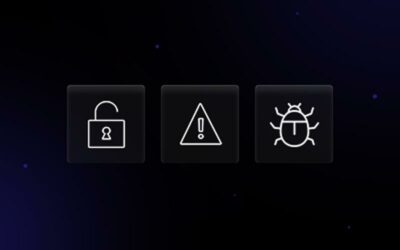At a certain point, all the antivirus solutions in the world couldn’t prevent the human element from messing everything up, and cybercriminals know this. They will do whatever they can to dupe you into dropping your guard and sidestepping standard security protocols.
So how do you avoid this? Well, for starters, you need to educate yourself on popular social engineering tactics. What strategies do hackers traditionally employ to infiltrate the human element as opposed to hardware and software vulnerabilities?
Secondly, you need to be mindful of how you interact online. Really think about what you’re doing and whether or not it can be used against you in the future.
Here are just a few of the areas you should always keep top of mind when maneuvering through the online world.
SOCIAL MEDIA
What are you sharing about yourself online? Does this information directly tie into any passwords or security questions outside of your social media accounts? If it does, hackers can use this information to quickly and easily hack your other online credentials.
And additionally, what are your privacy settings? Can anyone see everything or do your social platforms have limited exposure? You need to be fully aware of who can see what, for how long, and in what context.
CREDIT CARDS
Where you use your cards and what types of cards you use online are extremely important. Only use your cards on trusted sites that are encrypted and protected.
And if at all possible, avoid using debit cards. Credit cards typically offer better fraud protection policies, and plus, it’s always better if someone drains your credit card rather than your bank account.
PASSWORDS
We all know passwords are important, and we’ve all been educated and re-educated on the basics of password creation. But, alas, passwords still need to be mentioned. Your passwords must be unique. In other words, never use a password for more than one account.
And your passwords should also be strong. Phrases with a random concoction of capitalization and characters are ideal.
EMAIL ADDRESSES
The cleaner you can keep your inbox, the better off you’ll be. Don’t subscribe to anything and everything just because you can. This will only open up your account to be hacked by more avenues than necessary and increase your potential to be phished.
If you absolutely need to subscribe to something, consider creating a separate email address. One account can be used for bills and important communication while the other account can be used for subscriptions, coupons, and other miscellaneous items.
PUBLIC WI-FI
We’re all guilty of it…aimlessly connecting to any Wi-Fi connection within range. But, unfortunately, not every Wi-Fi connection is created equal. In fact, some are downright malicious.
Fake Wi-Fi hotspots can track everything you type, anywhere you go, and whoever you interact with. If you’re going to connect to public Wi-Fi, never access anything that’s too sensitive – for example, don’t log into your bank account or email your boss about that top-secret project you’ve been working on.




